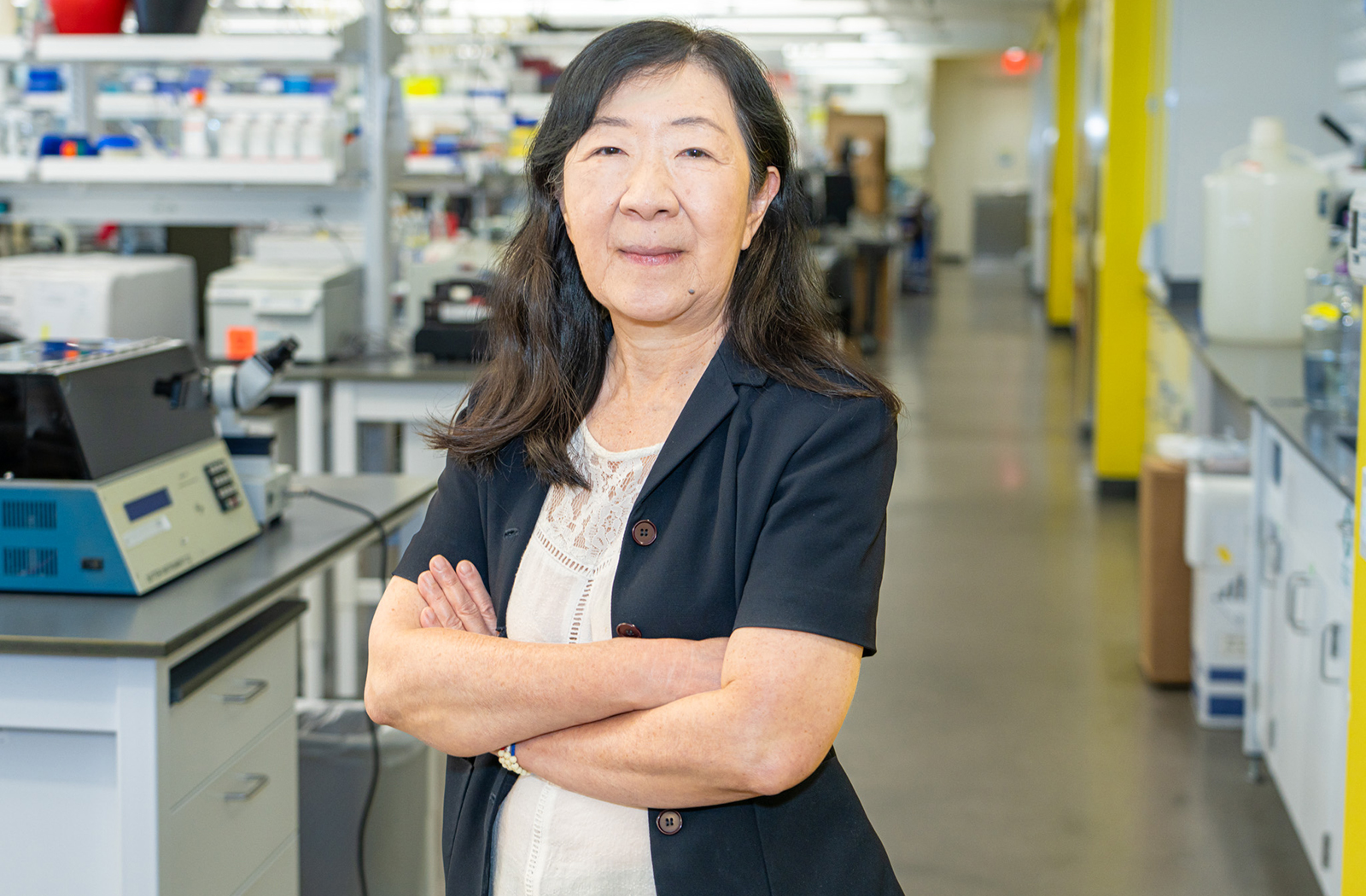
Women in Medicine and Science - Nipavan Chiamvimonvat, MD

Almost two months ago, Nipavan Chiamvimonvat, MD, became chair of the Department of Basic Medical Sciences at the University of Arizona College of Medicine – Phoenix. A physician scientist whose career has been dedicated to treating patients with cardiac arrhythmia disorders, she came to the college to advance fundamental, translational and clinical research breakthroughs.
Her research focuses on understanding the cellular and molecular mechanisms contributing to cardiac arrhythmias and sudden cardiac death in heart failure.
Clinical practice in cardiovascular medicine and this field of research have changed dramatically since she began her training, and it continues to evolve. New high-resolution multimodal diagnostic imaging, genotype analyses in familial cardiomyopathy and arrhythmias have made diagnosis faster and simpler; and improved therapies for cardiac arrhythmia and acute coronary syndrome, heart failure, coronary heart disease and familial hypertrophic cardiomyopathy have all enhanced patient outcomes.
But toppling cardiovascular disease (CVD) from its century-old position as the leading cause of death in the United States, according to the CDC, remains a daunting challenge. “Health disparities remain a major issue in CVD. It is well documented that preventive health and lifestyle modification play critical roles in decreasing morbidity and mortality for CVD, especially with global obesity epidemics,” Dr. Chiamvimonvat explained.
Climate change is estimated to have profound effects on people’s health, and it will disproportionately impact underserved communities. This, coupled with other social determinants of health — such as access to health care, education, and exposure to environmental pollutions and chronic psychosocial stresses (CPSS) — has shown to be pivotal in the pathogenesis of CVD. CPSS and exposomics — environmental factors — have also been linked to the development of atrial fibrillation, coronary heart disease and sudden cardiac death.
“While most CPSS have been evaluated largely in isolation, they typically occur in populations as a constellation of multiple factors or clusters with different penetrance. Moreover, the overall effect of a cluster of CPSS remains less well studied and may have an important impact when devising preventive or therapeutic strategies,” Dr. Chiamvimonvat said.
In response, her investigative team and collaborators are focused on understanding the molecular mechanisms underpinning the critical roles of psychosocial stressors and exposomics on cardiovascular health in underserved multiethnic populations. They are testing how clusters of CPSS result in heightened inflammatory states, neurohormonal dysregulation, and autonomic imbalance, leading to cardiovascular disease development and exacerbation. The work is currently supported by the American Heart Association Strategically Focused Research Network Center.
When asked how she would define success in her career, Dr. Chiamvimonvat values the pursuit of these discoveries and serving as a mentor to future clinicians and researchers as equally important.
“I am most proud of the success of our junior faculty and trainees,” she said. “Our new and early-stage investigators, postdoctoral and predoctoral trainees have been highly successful in obtaining extramural funding. I will continue to provide leadership and vision, as well as serving as an advocate for the career development of junior faculty, fellows, postdoctoral researchers, medical students, undergraduate and graduate students, and high school students.”
This dedication to mentorship is one way she hopes to encourage more women in medicine and science.
“Women throughout history have played and continued to play critical roles in innovation, science, technology, engineering and mathematics (STEM), humanity, research and development, as well as leadership and advocacy — with a remarkable number of trailblazers and thought leaders,” she said. “It is imperative that we continue to break barriers and inspire the next generation of women around the world to become leaders, innovators, entrepreneurs, scientists, educators, policy makers and health care providers,” she said.
Dr. Chiamvimonvat received her medical degree from the University of Toronto. She then completed her residency in internal medicine at the same institution. She finished a fellowship in cardiology at the University of Western Ontario and later completed fellowship training in clinical cardiac electrophysiology at the University of Calgary. She received additional research training at Johns Hopkins University.
Read more Women to Watch in Medicine and Science profiles
About the College
Founded in 2007, the University of Arizona College of Medicine – Phoenix inspires and trains exemplary physicians, scientists and leaders to advance its core missions in education, research, clinical care and service to communities across Arizona. The college’s strength lies in our collaborations and partnerships with clinical affiliates, community organizations and industry sponsors. With our primary affiliate, Banner Health, we are recognized as the premier academic medical center in Phoenix. As an anchor institution of the Phoenix Bioscience Core, the college is home to signature research programs in neurosciences, cardiopulmonary diseases, immunology, informatics and metabolism. These focus areas uniquely position us to drive biomedical research and bolster economic development in the region.
As an urban institution with strong roots in rural and tribal health, the college has graduated more than 1,000 physicians and matriculates 130 students each year. Greater than 60% of matriculating students are from Arizona and many continue training at our GME sponsored residency programs, ultimately pursuing local academic and community-based opportunities. While our traditional four-year program continues to thrive, we will launch our recently approved accelerated three-year medical student curriculum with exclusive focus on primary care. This program is designed to further enhance workforce retention needs across Arizona.
The college has embarked on our strategic plan for 2025 to 2030. Learn more.